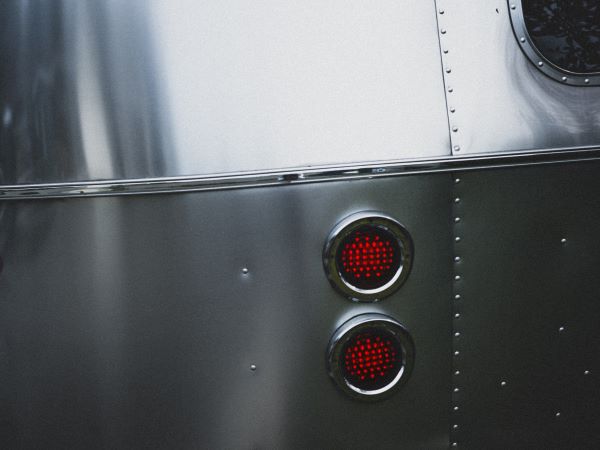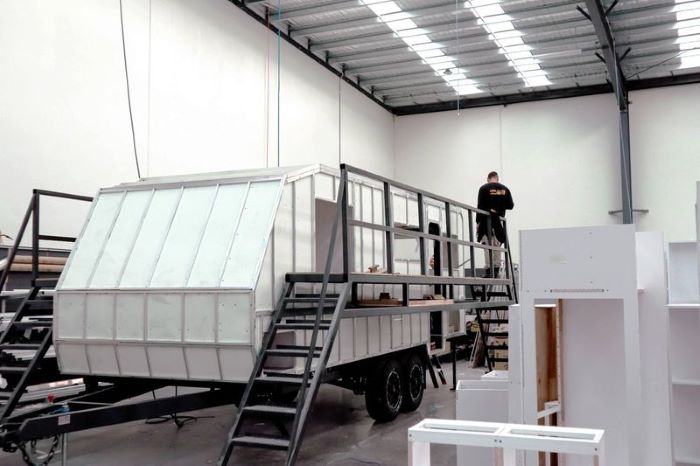
Comparing Caravan Frames: Steel vs. Aluminium vs. Timber
The construction of caravans is a topic that often sparks debate, and the choice between Steel vs Aluminium construction has been a recent point of contention. While it’s true that most caravans utilise steel for their chassis, it’s essential to clarify that steel is not typically used in wall framing due to its weight and unnecessary bulkiness.
Steel is indeed the material of choice for manufacturing chassis, providing strength and durability to support the caravan’s structure and contents. However, when it comes to wall framing, steel’s weight renders it impractical. Instead, wall frames are commonly constructed from lighter materials such as timber or composite materials.
On the other hand, aluminium is also used in wall framing due to its lightweight nature and corrosion resistance. Our Urban Caravan range for example, features a fully TIG-Welded Aluminium Frame which is incredibly strong, corrosion resistant and lightweight.
Steel is for the Chassis.
When envisioning the robustness of a caravan, it’s natural to associate steel with strength and durability. However, in the context of caravan construction, steel finds its home primarily in the chassis. The chassis forms the foundation of the caravan, providing structural support and withstanding the rigours of travel. Its resilience against heavy loads, rust, and corrosion makes it an ideal choice for this critical component.
On the other hand, wall frames, which form the structure of the caravan’s walls and roof, require materials that offer strength without excessive weight. This is where timber and alloy come into play, offering unique advantages that cater to the specific needs of wall frame construction.

Timber Frames for Caravans
Timber has long been a staple in construction, valued for its versatility, sustainability, and inherent strength. In caravan construction, timber wall frames offer several advantages. Firstly, timber is lightweight yet robust, providing structural integrity without compromising on weight. This is crucial for maintaining fuel efficiency and ease of towing.
Moreover, timber is readily available and easy to work with, allowing for precise construction and customization according to design specifications. Its natural insulating properties also contribute to enhanced comfort and energy efficiency within the caravan. Additionally, timber wall frames can be easily repaired or replaced if needed, minimizing maintenance costs and downtime.
Aluminium Frames for Caravans

Timber vs. Aluminium: Which is the Best for Caravan Frames?
The real question should be, “Do I need aluminium?” If your caravan adventures frequently take you off the beaten path, navigating 4×4 trails, tackling extreme environments, or venturing into remote wilderness areas with genuine recovery gear, then aluminium might be the way to go.
Aluminium frames offer lightweight durability, ideal for challenging terrains and harsh conditions. Their corrosion resistance ensures longevity, making them a reliable choice for rugged expeditions where every ounce counts.
However, if your caravan trips tend to stick to semi-off-road conditions, like gravel roads around picturesque lakes or rough grass campsites, then aluminium might not be a necessity.
In these scenarios, timber frames can provide sufficient strength, stability, and versatility without the added expense of aluminium. Plus, timber frames offer the advantage of easy customisation and repair, ensuring convenience for caravan owners seeking practical solutions for their adventures.
In essence, the decision between timber and aluminium frames boils down to your specific needs and intended usage. By considering the demands of your caravan excursions, you can determine whether aluminium is essential to elevate your travel experience. Whether you’re embarking on rugged expeditions or leisurely getaways, choosing the right frame material ensures that your caravan is ready for whatever the road may bring.